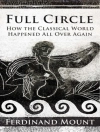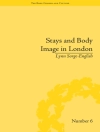Global history has come of age but has had little impact on the historiography of early modern Germany. This volume seeks to bring a global perspective to the history of Central Europe by addressing understudied global and colonial entanglements. Exploring the impact of these interactions on court life and home towns, labor migration, material culture, and religious communities, the microhistories presented here reveal the myriad ways in which connections and disconnections underpinned early modern Germany. The authors engage with contemporary debates about global history in general, taking its lacunae as a cue for substantial methodological revisions.
Inhaltsverzeichnis
List of Illustrations
Acknowledgements
Introduction: Globalizing Early Modern Germany
Christina Brauner, Renate Dürr, Philip Hahn, Anne Sophie Overkamp, and Simon Siemianowski
Part I: Mobility: Moving and Belonging
Chapter 1. Their Last Days in Europe. Germans on the Amsterdam VOC Fleet of 1775
Jelle van Lottum and Lodewijk Petram
Chapter 2. Between Beutelsbach and Batavia: A Cooper’s Career and His Involvement in Colonial Violence
Philip Hahn
Chapter 3. Encountering Opportunities: Inheritances, Knowledge Gaps, and Invented Global Connections in the German “Hinterland”
Lukas Wissel
Chapter 4. Between Slavery and Exoticism: People of Color at the Dresden Court
Rebekka von Mallinckrodt
Part II: Globality: The World of the Hometown
Chapter 5. Bringing the World to German Home Towns? Lutheran Baptisms in the Context of Abduction and Slavery
Renate Dürr
Chapter 6. Two Inventories – Two Braunschweigs: Hometown Germans and the Eighteenth-Century Slave Economy
Eve Rosenhaft
Chapter 7. Encountering the Middle East in Early Modern Germany: A Prince of Palestine in Nuremberg, 1778–1779
Tobias P. Graf
Chapter 8. A Small Town in Germany and Its Global Dis:connections
Anne Sophie Overkamp
Chapter 9. Putting the Hanse on the Map: The Civitates Orbs Terrarum (1572–1617) as a Mediated Global Encounter
Suzie Hermán
Part III: Materiality: Local Tastes for the Global
Chapter 10. Global Goods, Familiar Strangers, and Some Local Knowledge of the World: A View from the German-Dutch Borderlands, ca. 1700
Christina Brauner
Chapter 11. Global Food in Southwestern Germany around 1770
Daniel Menning
Chapter 12. Reading Materials: Gift Exchanges between Sonora, Spain, and Lucerne
Simon Siemianowski
Chapter 13. Global Itineraries, Curative Effects, and Sacred Scents: Eaglewood Rosaries in Early Modern German Material Culture
Anne Mariss
Chapter 14. Colonial Objects in the Cabinet of Curiosities? Christoph Weickmann’s “Outlandish Things” in Ulm
Kim Siebenhüner
Part IV: Going Beyond: Perspectives and Agendas
Conclusion: German Global Microhistory, or: The How and The Why
Ulrike Strasser
Appendix 6.1
Appendix 6.2
Index
Über den Autor
Anne Sophie Overkamp is, as of October 2024, Associate Professor for the History of Science and Technology at the University of Wuppertal. Her research interests include German social and economic history with a particular focus on consumption history and material culture, as well as the history of botany in global and imperial contexts.
Simon Siemianowski is Assistant Professor at the University of Tübingen. His research focuses on global history and the history of language and cultural translation in the early modern period.












